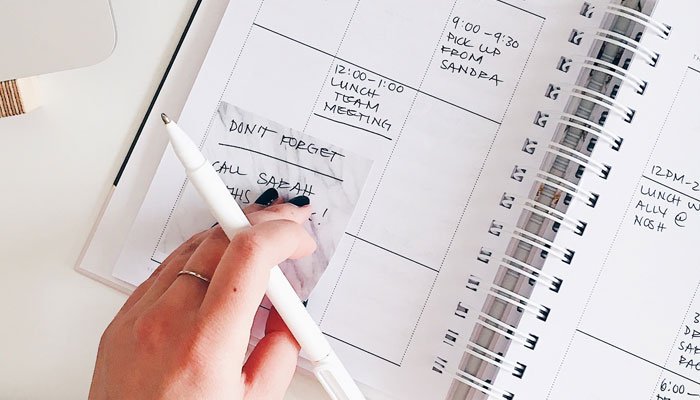We all have things about ourselves that we would like to change. From unhealthy eating habits and personality quirks to making a larger lifestyle shift, we all struggle to reset our inner dialog and embrace big, lasting change. But how do we start? How can we stay focused enough to achieve success? What do we do when we feel like the odds are stacked against us?
Like climbing an impossible mountain, it’s easy to only see difficulty, heartache and pain. But we all know that growth doesn’t happen when we remain comfortable–and it certainly doesn’t happen overnight. If we want lasting change and to shatter the bonds of bad habits we have to be open minded, focused and willing to accept support.

To get you started on your journey, here are 10 simple steps to help you tackle habits that are doing you more harm than good:
1. Cut yourself some slack
Habits are hard to break for a reason. Habits are essentially shortcuts that our brain has established over time. In order to save energy and keep decision fatigue at bay, our brain creates connections that kick our actions into autopilot — giving us the added advantage of not having to burn extra calories it takes to make new decisions. Additionally, if we’ve triggered a feeling of pleasure, the reward center of the brain has been activated (example: eating a delicious cupcake or indulging in a basket of fries). When this happens, dopamine is released and those habits are further solidified.
In a nutshell, your brain is going to resist change. You might even begin to crave the unwanted behavior as a result of the missing dopamine. This means you’re going to have to actively rewire that setting within your brain…which is hard! And frustrating. So cut yourself some slack; this is going to take time, conscious effort and a serious reset to establish those new, healthier connections.
2. Identify what you want to do differently
Merely thinking about your bad habit and wishing it away isn’t enough. It’s important to identify the behavior you want to change and think about adjacent factors and situations that surround that behavior. For instance, let’s suppose you’d like to quit smoking. You begin to notice triggers that lead to wanting cigarettes; stress, working late, or consuming alcohol. Recognizing patterns and building an awareness are the very first steps to making positive change.
“Life isn’t about the destination, but the journey itself.”
3. Specify the underlying cause
Habits are created for good reason; they can save time and help us to become more efficient. The habit of checking your email at work can help you organize and prioritize your day. Checking for your keys, wallet and phone before you leave the house is another positive, time saving habit.
Unhealthy habits surface in a similar way and there are concrete reasons that they have taken root. If you watch too much Netflix, could it be a result of loneliness, apathy or depression? If you drink too much, might there be a self medicating component to this tendency? Getting to the very source of these habits is essential in understanding how to change them permanently.
4. Give it a positive spin
Going cold turkey with your unsavory habits, though tempting, isn’t always the best approach. In fact, you may be setting yourself up to fail. You’re unlikely to stop your bad behavior unless you find a positive way to deal with it. If it’s all doom and gloom (“Who are you kidding? You can’t do this!”) and your inner asshole is dominating the conversation, it’s time to flip the script. Be reasonable with yourself as well as your expectations and connect with others who are on a similar journey. Make sure that small rewards pepper your efforts and remind yourself that Rome wasn’t built in a day.

5. Make a plan and break the plan into manageable steps
Remember: creating new habits is tough and takes a lot of determination. You are basically rewiring your brain! So set yourself up for success by creating mini-goals and baby steps along the way. For instance, let’s suppose you’re trying to integrate regular exercise into your week. Instead of ramping up to 5 days of exercise a week out the gate try for steady and intentional, shooting for 2-3 days at 30 minutes of activity to start. Consistency and staying the path is key. Celebrate your wins no matter how small and remember that any progress is a step in the right direction!
6. Be patient and kind to yourself
On average it takes 21 days to get a bad habit under control. But not all people (or habits!) are the same so remember to be patient and kind to yourself. Give yourself time to adjust and if mistakes are made, all is not lost. You are a good human who deserves health, love and happiness. And even a goddamn chocolate bar once in a while!

7. Get yourself a support buddy.
Being accountable to others is a great motivator. This could mean seeking help from a therapist, or it can be in the form of family, friends or an online support group. If you can hold one another mutually accountable even better; having someone to commiserate with may provide that extra boost when the going gets tough. It also means the world to know that someone is in your corner, cheering you on and reminding you of victories that you may have otherwise overlooked.
8. Change your environment
When your surroundings are a constant reminder of your bad habit, it’s time for a change of scenery. Though leaving town or moving house may not be possible, the routes you take and interactions that you instigate certainly are. Pay close to signs of toxic relationships for instance, or traveling in social circles that call to your bad habits. Find yourself stopping at that same fast food restaurant on your way home from work? Choose a different route. Noticing a spike of anxiety when you’re around particular friends? Make an effort to spend time with people that put you at ease. Little changes in your environment can really make a huge difference.
9. Anticipate setbacks.
Flipping any bad habit is incredibly hard and you are bound to slip up once in a while. Consider implementing some meditative techniques and simply notice when the going gets tough. Breathe and recognize that you are human and humans make mistakes. When (not if!) slip-ups occur, learn from your behavior and take a moment to recognize how far you’ve come. Think back to your goals and remember why you’re making this change in the first place. You’re worth it and success rarely occurs without a good deal of failure to pave the way.

10. Document your journey
Life isn’t about the destination, but the journey itself. We are often so wrapped up in the day to day that we rarely take the time to reflect, notice important patterns or recognize how far we’ve come. One new and wonderful habit that may work to support positive change is the act of journaling. By tracking your intentions, progress and mindset shifts within a notebook or journal you are actively establishing new cognitive connections. You are forcing yourself to process information differently and adding a dash of reflection for good measure. Writing just a few sentences at the beginning or end of each day may begin to open doors that you never knew were closed.




